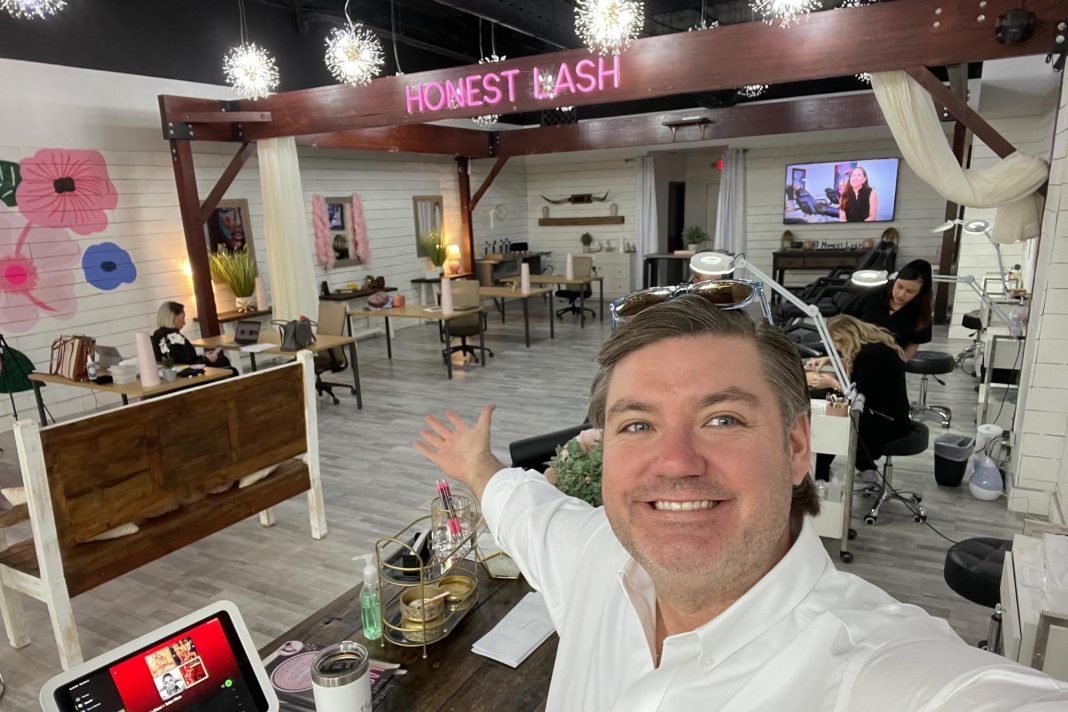Jonathan Ellis’ grandfather was one of the first McDonald’s franchisees in Texas, opening the first of more than 80 locations in 1969 in Beaumont. Consequently, Ellis literally grew up at McDonald’s. Years later, the family sold its stores — and Ellis set out on an entrepreneurial journey that took him down an unexpected path.
Growing up in the McDonald’s system
The Ellis family spent 50 years as McDonald’s franchisees. Ellis says he worked every job at McDonald’s, from janitorial and maintenance to manager. “I worked in restaurants as a kid, and my dad would put me up on the roofs to fix air conditioners in the summers,” he says. “When I got older, I started working in kitchens and throughout high school and college, started getting some management training.” Ellis credits working various jobs with helping him communicate with employees at every level.
Ellis, who spent his early personal and professional life involved with the company, added that he picked up many valuable lessons growing up in the McDonald’s system. “Watching my dad and grandfather do their thing [with] McDonald’s was amazing,” he says. “But on the same note, I wanted to do something to make a different impact.”
The family cashes out, and Ellis goes into tutoring
Ellis says his family came to a crossroads in 2017 as his grandfather was aging. The restaurants were still profitable, but McDonald’s was planning several initiatives that required significant franchisee investment. “At the time, McDonald’s was pushing Vision 2020, essentially the newest, latest, greatest version of McDonald’s you see today,” he says.
The physical remodeling, including new menu screens, kiosks and kitchen equipment, was a considerable expense. “Yes, it’s cool,” Ellis says. “But those iPads and those giant kiosks were $30,000 to $40,000 each; the digital menu boards were $100,000.”
The family decided to sell the franchises in 2017, giving Ellis the freedom to explore his entrepreneurial ideas. “Learning from McDonald’s, it’s the best of the best, an amazing corporation, but very bureaucratic,” he says. So he decided to step into a completely different arena and open several Sylvan Learning Centers.
Related: How Immigrating from Argentina to the Bronx Prepared Her for Life as a Franchisee
Covid closures threaten the business
Ellis’ Sylvan Learning Centers started opening in 2019. Like any investment, there were risks, but Sylvan was an established brand with more than 500 units nationwide, and Ellis had done his due diligence. In February 2020, Ellis had 15 Sylvan Learning locations and about 300 employees. Then, Covid hit. “We were immediately slammed in the face with global shutdowns,” he says. Most of his employees were local teachers who worked part-time, but he eventually had to let them go — and lay off 20 of his 25 full-time employees.
“We were immediately slammed in the face with global shutdowns.”
Ellis secured a PPP loan, which kept the Sylvan locations going for a few months, but he was still struggling. “My monthly overhead was outrageous, and I just bought these franchises, so there [was] a significant amount of debt,” he says.
Then, Texas canceled standardized testing for the remainder of the school year. “That was a major revenue driver for Sylvan,” Ellis says. “Once they canceled the testing, my phone calls went from barely any to almost nonexistent. At that point, I was going to run out of money.”
Ellis called Sylvan and gave it “a fire sale deal,” he says. “These other franchisees were picking up brand new locations that I had just invested good money into.” He sold 12 of his 15 locations and de-branded the remaining three.
Overnight transformation
Ellis knew he had to devise a plan for the remaining three locations — the rent was still due on their leases. “My wife and I came up with a lash concept, a liquor store concept and a pet wash concept,” he says. “What was intriguing about lashes was it seemed very niche, but I know once beauty finds its lane, it creates its own industry.”
The ultra-competitive lash industry, valued in 2021 at $1.6 billion, is expected to grow at a CAGR of 6.2% from 2022 to 2030. Although these are impressive numbers, the danger of market oversaturation is real.

Image credit: Honest Lash
Once Ellis settled on the lash studio concept, he wasted no time getting started. The week of Thanksgiving 2020, he went to work transforming the first of three locations. “On Friday, it was a tutoring center, and by Monday, it was a lash studio,” he says. “We pulled up all the tables and chairs and the education stuff and moved in a bunch of massage-type chairs and hung some chandeliers.”
In the three years since then, Ellis has gone from franchisee to franchisor.
Related: Become a Franchise Owner in 5 Easy Steps
Taking Texas
Today, Honest Lash has four corporate locations in Austin and recently sold two franchises — in El Paso and San Antonio. “As we speak, I’ve got four or five in the pipeline,” Ellis says. “We’re going hard and heavy in Texas, and we’re going to build out this market.”
Honest Lash’s COO, Megan Madere, joined the company as it was changing over to Honest Lash and has been promoted as it has expanded. She echoed Ellis’ assessment of the Texas market. “Our goal is to try to be that strong Texas brand, like Whataburger,” she says. “After we’ve got the major markets done, we’ll saturate Texas from there.”
Strong support and effective reach are two pillars of Ellis’ business philosophy, and he says he loves the role he’s stepped into because it stimulates the “McDonald’s side of the brain” and allows for maximum creativity and entrepreneurship. “This is the most fun I’ve ever had because it’s just a different role,” he says. “I’m trying to put my own spin on it but still stay very much in the McDonald’s framework.”




